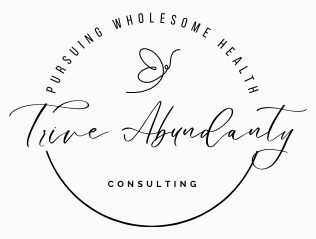This is post 5 of the “Living Fully Alive” Blog Series. Reading the posts in the order they were posted is recommended for the best reading experience.
Hopefully you have digested the last post, practiced some self-awareness by filling in your subconscious heart, and are ready to dive into finding out all the different places emotions can come from. One of the main purposes for this is so we begin to realize not all emotions originate from within ourselves.
Emotions come from THOUGHTS.
“For as he thinks within himself, so is he.” Proverbs 23:7
The average human brain thinks somewhere around 50’000 thoughts a day. Don’t ask me how they know this. The numbers probably vary depending on the source of the information, but it gives a good idea of the bottom line. About 70% of those thoughts are thought in your subconscious brain, (I actually read it’s up to 90%) which works at much higher speeds than your conscious brain. Out of that 70% of thoughts in the subconscious brain, 95% are repeating, same thoughts you think to yourself. Many of your emotions follow your thoughts. In session one we learned that changing your thinking can change your beliefs. Thoughts affect your beliefs, affect your emotions, affect your actions, etc.
It is important to become aware of what I think to myself. I still find it a little weird to use my prover to figure out what type of thought I’m thinking in my subconscious. It’s like someone is telling me what I’m thinking and I wonder, “I am?” But how else am I going to become aware of my thoughts and emotions that were previously buried below the radar? I may not have the exact thought, but maybe a cluster of familiar thoughts that fit the subconscious belief. Thankfully I have absolute truth in God’s word I can begin to speak to those opposing thoughts, and I can rest at ease knowing that even if I am not discerning my unhealthy thoughts perfectly, I am renewing my mind with absolute truth. Nothing can be harmful in this exercise. I literally can’t lose when I feed my brain truth from the Bible.
The reason it may feel counter intuitive at first is because my brain has been hit with the opposite so long, it has stopped alerting my conscious and it has become embedded as normal. I don’t pay attention to what is normal. I don’t usually walk through the day aware of the absence of pain. Its normal not to have back pain so my brain isn’t telling me to pay attention. But I did have bad back pain in the past, and that brain was firing up letting me know all the time. My body found its own way of dealing with the pain once it became chronic. But once that chronic pain was gone, I felt such a difference. So much energy had gone into suppressing that chronic pain and is now no longer needed. I think it is similar with un-teaching my subconscious a negative normal. I may have learned how to cope with the negative, but once it is replaced with what should be normal, I think a lot more energy will be available for things that don’t involve maintaining a negative status quo. I basically am in the process of re-teaching myself what is a good baseline for normal. I am hunting down all the negative ones and replacing them with positive ones.
I was doing the 21-Day Brain Detox by Dr. Leaf right before starting this class. It’s all about identifying toxic thoughts and replacing them with healthy ones. In one of the exercises I realized that one of the reasons I was feeling so frustrated, angry and resentful was because I had a thought in my subconscious that said I have to juggle everyone else’s balls. As a result, I have been working so hard on behalf of everyone else, and they neither appreciate it nor cooperate with it. When I identified this and changed my thinking to ‘I am not responsible for other people’s choices’, I began feeling like a weight had lifted. This is as good as any example of how thoughts impact emotions, right?
Homework Invitation: find at least one example in your life where your emotions were originating from your thoughts.
To learn more about the Living Fully Alive course and about Abi and Justin Stumvoll, please click the hyperlink.







